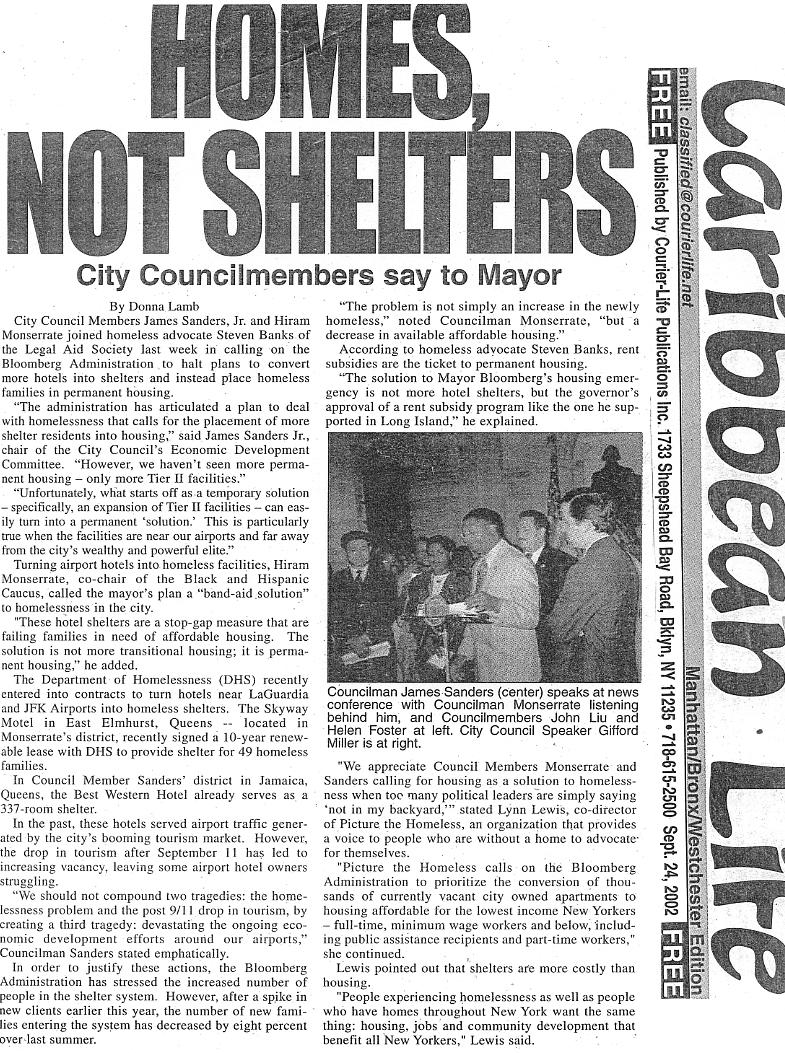
1 minute read
2002: HOMELESS PEOPLE ARE WORTH BIG MONEY
PTH’s co-founders followed reports in the media about the cost of the homeless shelter system cost and demanded that money be used to create housing for poor people. In this early article from Caribbean Life, in January 2002 Anthony Williams is quoted:
“Every homeless person you see is worth big money. Once we give a provider our Social Security number, our Medicaid card, every time we sign our names on a sheet of paper, that's money from the government. You have to sign your name every night for a bed; you have to sign for breakfast, lunch, dinner each program, everything.
"And," he continued, "I figured out that I am very valuable, but I didn't realize it because I was so caught up in the system, just going from shelter to shelter. In the system I'm worth a minimum of $23,000 a year. And I found out that services for people with serious mental illness can cost up to $40,500 annually… Even though the services are provided by not-for-profit companies, a lot of the Executive Directors of these companies make 6 digits a year so they don't necessarily want to end homelessness. And that's across the country."
"We have to ask ourselves why isn't homelessness being ended; why aren't they developing affordable housing? So I started to follow the money. I read an article that said $60 million had come to New York City for the homeless. I wondered, 'Where does that $60 million go?' Then I found out that living in a shelter getting a locker and a bed costs the government $2,000 a month per person. I said, 'That's enough for any of us to have an apartment, right?'
"That really got me, finding out about the $2,000 a month. I looked at the Bellevue Men's Shelter and counted 850 men living there at $2,000 women's shelters and the family shelters. I started looking at numbers, and connected the many vacant buildings
A report from the New York City Independent Budget Office’s review of shelter access from 2002 to 2012, confirms what PTH and homeless families were witnessing. “While the city saw a significant increase in applications to emergency shelter for families from 2002 through 2012, it became more difficult to enter shelter during that period.”
2004:








